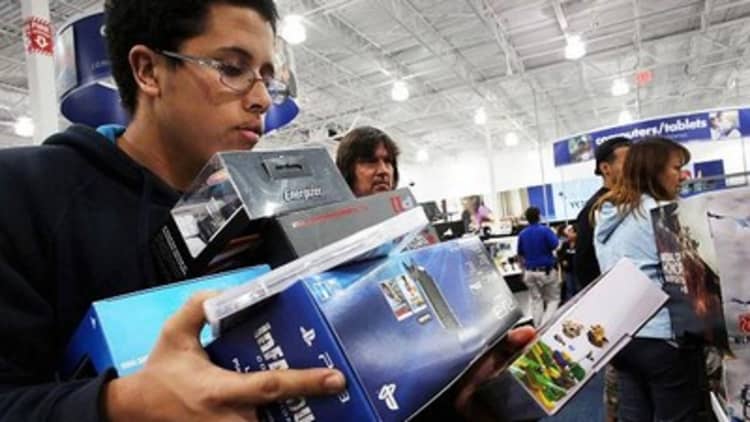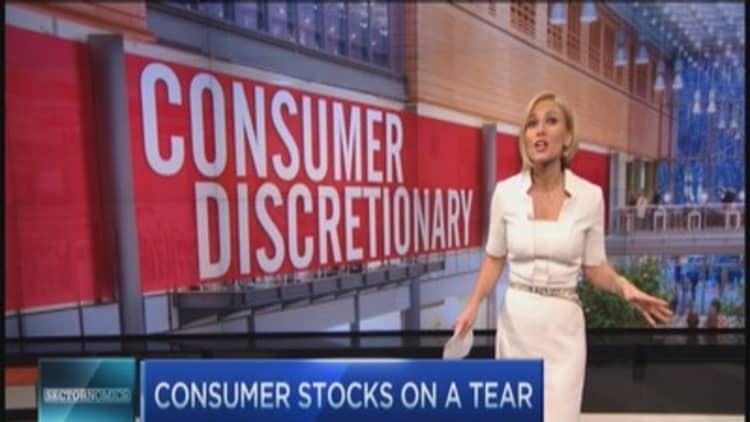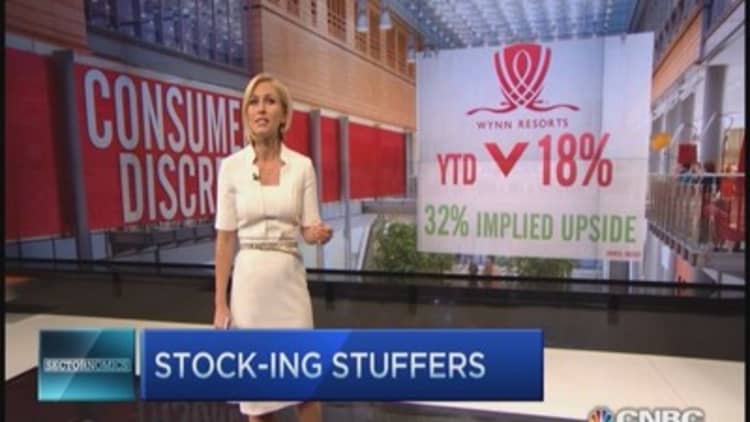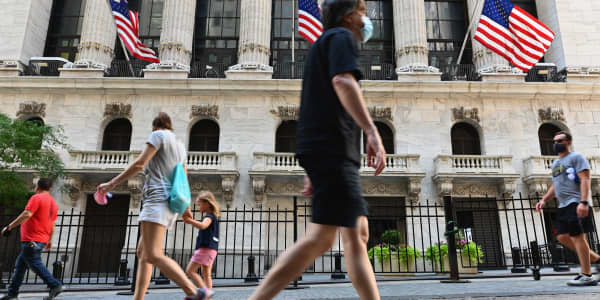


Holiday shopping season may be in full swing, but consumers haven't been spending enough to turn around big year-to-date losses for shares of some major retailers.
Well into December, many retailers are hoping that the remaining 17 days of the holiday season will reverse the stock trend. But it won't be easy. The sudden and precipitous plummet of prices at the pump isn't even a slum dunk to help retail sales recover.
The retail dogs include Amazon, which has been hammered after a string of disappointing earnings, as well as Best Buy.
"The takeaway for the retailers," said CNBC correspondent Morgan Brennan, is that "strong holiday sales are likely to be offset by steeper discounts."
Losers' lineup
Best Buy has seen its stock drop 11 percent in 2014. Though frenetic activity crashed its website on Black Friday, indicating a strong uptick in online sales, the company has admitted that a shift to Internet retail may not be a favorable one, noting that its website's sales are largely outsourced.
Video game retailer GameStop had a worse 2014, dropping 24 percent. While video games were a "bright spot" over Thanksgiving weekend, said Arvind Bhatia of Sterne Agee, GameStop itself nevertheless recently slashed its full-year guidance.
Electronics retailers haven't been the only ones hurting; Urban Outfitters is down 16 percent this year. "Analysts say it's the same story as we've seen with other teen retailers; declining market share to fast-casual brands that change their lineups more frequently," Brennan said.
Read MoreMacho men beware: The rise of 'mampering'
And it's not just brick-and-mortars, either. Even behemoth Amazon dropped 22 percent this year. "It's spending a lot of money on other projects as its core business slumps," Brennan said. "That's been an issue all year; it's expected to continue."
Where the consumer is spending
The retailer blues doesn't mean that consumer discretionary bets are misplaced. In fact, the sector has been on a tear. It's been the one of the two top performers in the S&P 500, up almost 6 percent.
There's a bit of history to this trade. According to CNBC data partner Kensho, the sector as a whole has jumped each of the past five Decembers. The biggest winners have been home builders, media and leisure.
Cruise ship operator Royal Caribbean is up about 17 percent over the last month, helped by its recent addition to the S&P 500.
Retail giant Target is up about 14.5 percent in the last month, reporting better-than-expected earnings and benefiting from an "aggressive approach to the holiday season," Brennan said.
Home-improvement chain Lowe's posted a 14 percent gain in December. "In general, home improvement and home builder stocks both have tended to outperform in December as well as January," Brennan said.
And New York-centered Cablevision is up around 12 percent over December as cable rate increases have offset subscriber decline.
3 trades for the risk-taker
If you're hunting for risk-big reward trades, look no further than some of the big laggards in consumer discretionary. GameStop is one of the worst performers, down nearly 30 percent year-to-date, but analysts polled by FactSet expect the video game retailer to jump 35 percent over the next year.
Read MoreA $27 billion sale in need of a lot more coupons
Though Michael Kors is down 5 percent in 2014, analysts' consensus estimates suggest a 21 percent implied upside over the next 12 months.
Wynn Resorts hit a 52-week low today. "Analysts say Wynn's long-term investments [in Macao] and strong Vegas performance make this a longer-term, well, win," Brennan said. "Consensus upside: 32 percent for this stock."
—By Nicholas Duva, special to CNBC.com




